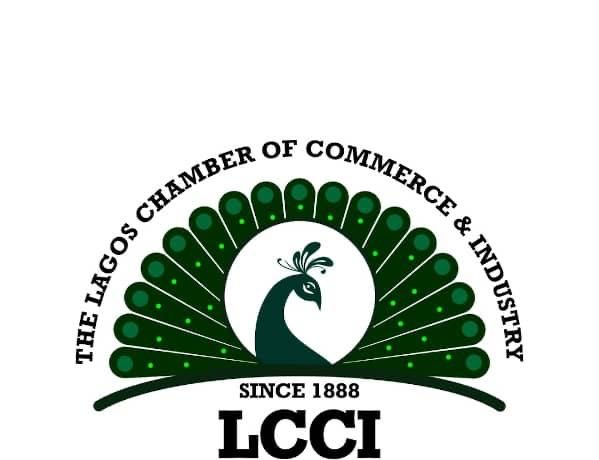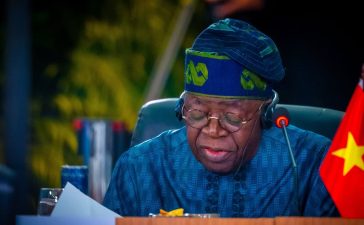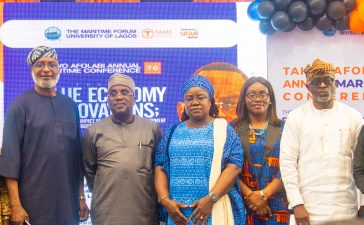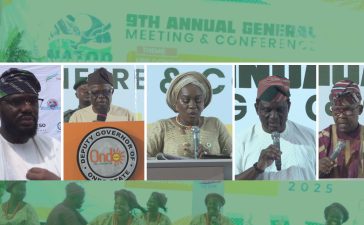In a collaborative effort to address the economic challenges facing Nigeria and highlight pathways for sustainable growth, the Lagos Chamber of Commerce and Industry (LCCI) and Cordros Capital organized the 2023 Mid-Year Economic Review and Outlook.
The event gathered stakeholders from various sectors of the economic with a view to analyzing the prevailing economic conditions, assess policy developments as well as discuss opportunities for both domestic and global business expansion.
Dr. Michael Olawale-Cole, President of LCCI, emphasized the event’s significance in his opening remarks. He underscored that the biannual gathering critically evaluated macroeconomic performance, identified emerging risks and opportunities, and set the tone for the next half-year. The LCCI, with a storied history of 135 years, has consistently engaged with the government and advocated for private sector growth, contributing to Nigeria’s economic advancement.
The Nigerian economy encountered significant headwinds during the initial half of 2023. Despite the relatively peaceful general elections in March and the subsequent transition in May, challenges persisted due to factors such as rising interest rates, inflationary pressures, foreign exchange volatility, and the liberalization of the downstream sector of the oil and gas industry. These factors collectively led to an elevated cost of living and intricate business conditions.
The economy’s performance in the first quarter mirrored these challenges, with GDP growth slowing to 2.31%. Notably, growth in the non-oil sector counterbalanced the oil sector’s recession. Foreign direct investments (FDIs) experienced a notable decline, coinciding with concerns about high public debt levels, debt sustainability, unemployment, and poverty.
he International Monetary Fund (IMF) downgraded Nigeria’s growth projection for 2023 to 3.2%, citing security issues in the oil sector, policy risks, and persistent high inflation, as highlighted in its July 2023 World Economic Outlook (WEO) Update.
In response to these challenges, President Bola Tinubu’s administration introduced a series of reform policies. Notable among these was the removal of fuel subsidies and the unification of the foreign exchange market. Palliative measures were also implemented to alleviate the impact on businesses, vulnerable populations, and low-income individuals.
At the conclusion of the Mid-Year Economic Review and Outlook, stakeholders reached a consensus on several crucial recommendations:
The consensus of Stakeholders at the 2023 Mid-Year Economic Review and Outlook
- Government should consider the urgent need for an all-encompassing economic and fiscal plan, full/ partial divestment of state-owned real estate, improved transport sector, and energy assets as post-election priorities.
- The government must focus more on asset-based and equity offerings to improve revenue.
- Institutional reorganization is urgently needed in the CBN and the NNPC to improve transparency and accountability.
- The operating environment of NNPCL is somewhat opaque, which is anti-competition. The oil sector will attract the desired investment if the government liberalizes fuel import licenses and other vital activities in the midstream and downstream.
- Government should unlock revenue from assets by complementing tax with rent, fees, dividends, and capital gains. Economies that optimize revenue through equities have recently offset the loss from declining commodity prices.
- The new administration is advised to borrow better to reduce debt costs by issuing a more asset-linked debt than IOUs. The non-interest-bearing debt opportunities should be explored as emerging markets tilt towards project equity financing.
- BDCs should not be referred to as parallel or unofficial markets, because they are officially licensed to trade.
The consensus underscores the commitment of stakeholders to driving sustainable economic growth and resilience in Nigeria. It also reflects the collaborative efforts of both the public and private sectors to navigate challenges and seize opportunities for the country’s economic transformation.






